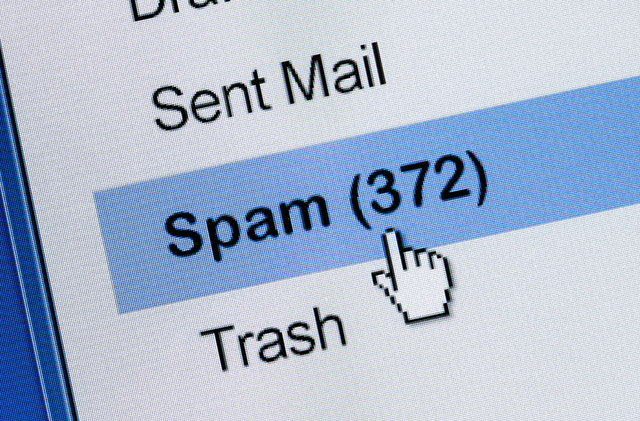Spam Guide

Spam is unsolicited email; it doesn’t always contain offensive material, but recently its content has been designed to tempt recipients to enter personal details either for marketing purposes or potentially to commit fraud of some nature. This is known as ‘phishing’. Similar to rogue street traders of the past who try to sell you unofficial or fake goods, you can also be bombarded with malicious, unwanted emails via the Internet which can be harmful for your computer if not blocked or deleted. Every day, thousands of unsolicited emails are being sent as junk emails which can be a mixture of things such as gambling or dating sites, hoax virus warnings and charity appeals, pornographic material or ‘get rich quick’ schemes.
Tell-tale signs that an email received is actually spam could include the subject line and contents not matching, spelling mistakes in the title or email account. If it is an offer which sounds too good to be true then it probably is spam or if the attachments are in an unrecognised file format then it is safer to leave them as unopened and delete the email straignt away.
The majority of email clients do come with a good level of spam filtering as standard. If you use Outlook 2003 or later, for example, there is a very good spam filter built in. Call us on and we can tell you how to activate it. If you need additional spam filtering, please call us to discuss on 0131 339 9448.
